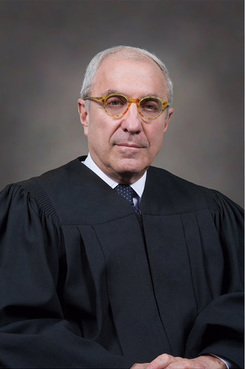Discovery Delays Get Countersuit Against Phila. Law Firm Tossed in Fee Row
Philadelphia Judge Gary Glazer ruled last week that counterclaims raised by Nabil Kassem and NMK Resources needed to be dismissed on a judgment of non pros because the parties raising the countersuit repeatedly violated the court's discovery orders by failing to timely and fully respond to the requests.
May 07, 2019 at 03:11 PM
4 minute read
 Photo: Shutterstock
Photo: Shutterstock
Counterclaims against a Philadelphia law firm stemming from a fee fight have been dismissed pursuant to a sanctions motion.
Philadelphia Judge Gary Glazer ruled last week that counterclaims raised by Nabil Kassem and NMK Resources in the lawsuit captioned Jacobs Law Group v. Kassem needed to be dismissed on a judgment of non pros because the parties raising the countersuit repeatedly violated the court's discovery orders by failing to timely and fully respond to the requests.
“Kassem's conduct has turned this litigation process into a pathetic spectacle where court orders have no force, agreements have no meaning, and the costs of litigation are unimportant,” Glazer said. “Such unprofessional conduct undermines the judicial process and cannot simply be cured by another motion for extraordinary relief or extension of deadlines.”
According to Glazer's eight-page opinion, the original lawsuit filed by the Jacobs Law Group sought to recover more than $130,000 in legal fees from Kassem and NMK Resources, a Thorofare, New Jersey, company that provides inspection and laboratory testing services for the petroleum industry. Kassem then filed counterclaims seeking $2.3 million in compensatory damages and disgorgement of $1.3 million in attorney fees. Glazer said the countersuit arose out of the law firm's representation of Kassem in connection with the dissolution of a corporation that he had interest in.
 Philadelphia Judge Gary Glazer.
Philadelphia Judge Gary Glazer.Glazer said the firm filed its first motion to compel in June 2018, and the court entered an order saying Kassem had to provide complete responses by mid-July. Although Kassem appeared to comply with that request, during a subsequent deposition, he admitted he had not done a full search of documents and had not searched his personal email account, which the firm contended likely contained agreements, admissions and other information that was pertinent to defending the counterclaims.
A few weeks before the initial Oct. 1 discovery deadline, Kassem's lawyer said Kassem had not provided a significant amount of the relevant documents and that the “file is a mess,” Glazer said. Kassem, according to Glazer, subsequently sent a hard drive to the firm with materials, but none of the documents were identified as being responsive to the firm's discovery requests. After the firm filed a motion for sanctions, Kassem produced more than 15,000 pages of documents, but the response still did not contain emails that were subject to the firm's motion, Glazer said.
During an oral argument session on the sanctions motion, Kassem agreed to produce the documents, and Glazer agreed to extend the deadline. Although Kassem provided about 1,000 additional documents in November, including the emails that were allegedly missing from the previous requests, those emails did not contain any of the attachments, Glazer said.
Following some additional filings, Kassem sought a protective order, and after the firm filed another motion for sanctions, Kassem agreed to provide the disputed emails and attachments and produce a privilege log. However, according to Glazer, the response was again insufficient, and only 50 of the requested 500 emails were provided.
The law firm then filed six motions for extraordinary relief, including three motions seeking sanctions and two motions to compel discovery responses.
Glazer said entering a judgment of non pros was an appropriate sanction because it was clear the discovery issues prejudiced the Jacobs firm's ability to defend against the counterclaim. Glazer also criticized Kassem's conduct, saying his compliance with the discovery demands was “piecemeal, disorganized and insufficient.”
“[The conduct] may, however, be deterred by the knowledge that such unprofessional conduct bears consequences which are harsh, but justified,” Glazer said. “It is the duty of this court and all courts to ensure the discovery process is respected, both for the sake of clients an the judicial system.”
In an emailed statement, Kassem's attorney, Matthew B. Weisberg, said, “While we respect Judge Glazer we believe he erred, towards which we will seek reconsideration and if necessary appeal. Otherwise, it is this firm's policy not to substantively comment on the merits of litigation.”
The Jacobs Law Group's lawyer, Michael Cawley of Gordon & Rees, said he thought the counterclaims did not have any merit.
“We're pleased with the resulting opinion and we're glad the court saw it the way we saw it,” Cawley said.
This content has been archived. It is available through our partners, LexisNexis® and Bloomberg Law.
To view this content, please continue to their sites.
Not a Lexis Subscriber?
Subscribe Now
Not a Bloomberg Law Subscriber?
Subscribe Now
NOT FOR REPRINT
© 2025 ALM Global, LLC, All Rights Reserved. Request academic re-use from www.copyright.com. All other uses, submit a request to [email protected]. For more information visit Asset & Logo Licensing.
You Might Like
View All
Blank Rome Snags Two Labor and Employment Partners From Stevens & Lee
4 minute read
12-Partner Team 'Surprises' Atlanta Firm’s Leaders With Exit to Launch New Reed Smith Office
4 minute read
Morgan Lewis Shutters Shenzhen Office Less Than Two Years After Launch

Trending Stories
- 1'A Death Sentence for TikTok'?: Litigators and Experts Weigh Impact of Potential Ban on Creators and Data Privacy
- 2Bribery Case Against Former Lt. Gov. Brian Benjamin Is Dropped
- 3‘Extremely Disturbing’: AI Firms Face Class Action by ‘Taskers’ Exposed to Traumatic Content
- 4State Appeals Court Revives BraunHagey Lawsuit Alleging $4.2M Unlawful Wire to China
- 5Invoking Trump, AG Bonta Reminds Lawyers of Duties to Noncitizens in Plea Dealing
Who Got The Work
J. Brugh Lower of Gibbons has entered an appearance for industrial equipment supplier Devco Corporation in a pending trademark infringement lawsuit. The suit, accusing the defendant of selling knock-off Graco products, was filed Dec. 18 in New Jersey District Court by Rivkin Radler on behalf of Graco Inc. and Graco Minnesota. The case, assigned to U.S. District Judge Zahid N. Quraishi, is 3:24-cv-11294, Graco Inc. et al v. Devco Corporation.
Who Got The Work
Rebecca Maller-Stein and Kent A. Yalowitz of Arnold & Porter Kaye Scholer have entered their appearances for Hanaco Venture Capital and its executives, Lior Prosor and David Frankel, in a pending securities lawsuit. The action, filed on Dec. 24 in New York Southern District Court by Zell, Aron & Co. on behalf of Goldeneye Advisors, accuses the defendants of negligently and fraudulently managing the plaintiff's $1 million investment. The case, assigned to U.S. District Judge Vernon S. Broderick, is 1:24-cv-09918, Goldeneye Advisors, LLC v. Hanaco Venture Capital, Ltd. et al.
Who Got The Work
Attorneys from A&O Shearman has stepped in as defense counsel for Toronto-Dominion Bank and other defendants in a pending securities class action. The suit, filed Dec. 11 in New York Southern District Court by Bleichmar Fonti & Auld, accuses the defendants of concealing the bank's 'pervasive' deficiencies in regards to its compliance with the Bank Secrecy Act and the quality of its anti-money laundering controls. The case, assigned to U.S. District Judge Arun Subramanian, is 1:24-cv-09445, Gonzalez v. The Toronto-Dominion Bank et al.
Who Got The Work
Crown Castle International, a Pennsylvania company providing shared communications infrastructure, has turned to Luke D. Wolf of Gordon Rees Scully Mansukhani to fend off a pending breach-of-contract lawsuit. The court action, filed Nov. 25 in Michigan Eastern District Court by Hooper Hathaway PC on behalf of The Town Residences LLC, accuses Crown Castle of failing to transfer approximately $30,000 in utility payments from T-Mobile in breach of a roof-top lease and assignment agreement. The case, assigned to U.S. District Judge Susan K. Declercq, is 2:24-cv-13131, The Town Residences LLC v. T-Mobile US, Inc. et al.
Who Got The Work
Wilfred P. Coronato and Daniel M. Schwartz of McCarter & English have stepped in as defense counsel to Electrolux Home Products Inc. in a pending product liability lawsuit. The court action, filed Nov. 26 in New York Eastern District Court by Poulos Lopiccolo PC and Nagel Rice LLP on behalf of David Stern, alleges that the defendant's refrigerators’ drawers and shelving repeatedly break and fall apart within months after purchase. The case, assigned to U.S. District Judge Joan M. Azrack, is 2:24-cv-08204, Stern v. Electrolux Home Products, Inc.
Featured Firms
Law Offices of Gary Martin Hays & Associates, P.C.
(470) 294-1674
Law Offices of Mark E. Salomone
(857) 444-6468
Smith & Hassler
(713) 739-1250





